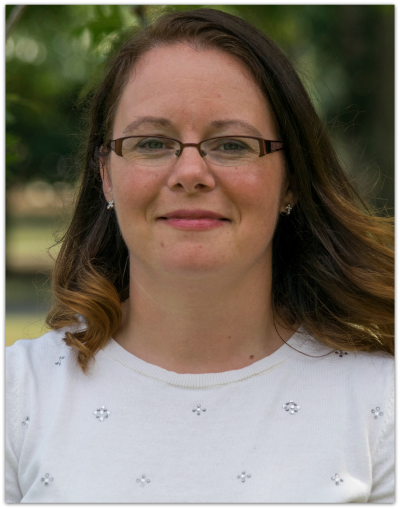 Alice Suroviec is an associate professor at Berry College, where she focuses her research efforts on the development of microelectrodes and applications of electrochemistry to real-time detection of biological analytes in aqueous solutions. Suroviec has recently been appointed to the ECS Electrochemical Science & Technology Editorial Board as an associate editor for the Journal of The Electrochemical Society (JES).
Alice Suroviec is an associate professor at Berry College, where she focuses her research efforts on the development of microelectrodes and applications of electrochemistry to real-time detection of biological analytes in aqueous solutions. Suroviec has recently been appointed to the ECS Electrochemical Science & Technology Editorial Board as an associate editor for the Journal of The Electrochemical Society (JES).
The Electrochemical Society: What do you hope to accomplish in your role as associate editor?
Alice Suroviec: I hope to make a stronger connection between the excellent work being presented at ECS meetings and JES. I would like to see that JES becomes a go-to journal for publishing the best work in our field. That we will be able to provide excellent peer-reviews in a timely manner and that the process is successful for both the authors and the reviewers.
ECS: How important is the peer review process in scholarly publications?
AS: The peer review process is critical to the process of disseminating scientific work. The sciences are by nature a team process. In the lab we work with other team members to produce novel research. The peer review process is an extension of that, where other experts in the author’s area weigh in to produce the best paper possible. Peer review in JES also provides a quality control so the readers of the journal know that they are reading reputable results.
ECS: What are some of the biggest barriers in the current publishing model?
AS: As a researcher at a primarily undergraduate institution with limited resources, I am not typically able to publish in open access journals that charge an author fee. But on the flip side, I also do not have access to all the traditional journals due to high library charges. Having an initiative like Free the Science means that I will have access to the latest research to use both with my research and lecture students. This would be a really powerful tool to prepare the next generation of scientists.
ECS: What are your thoughts on ECS’s Free the Science initiative?
AS: The principle of Free the Science is that current scientific research should be available to everyone. Students and faculty from around the world who would not normally be able to pay for access to the latest journals will have access under Free the Science. This should allow the advancement of new research to move faster with more people working on societal science issues such as clean water and renewable fuels.
ECS: What type of research are you currently focusing on?
AS: My research has mainly been in the area of bioelectrochemistry specifically looking at enzymatically modified electrodes for use as sensors. My research group uses self-assembled monolayers along with polymeric mediators to adhere enzymes to the surface and shuttle electrons. We both develop new electron mediating polymers and self-assembled monolayers in addition to looking into different classes of enzymes that have commercial interest. However, what I believe the main contribution of my research to society is to train up the next generation of analytical chemists for either employment or graduate school.
Find out about the peer review process at ECS. And learn how to publish with ECS!


